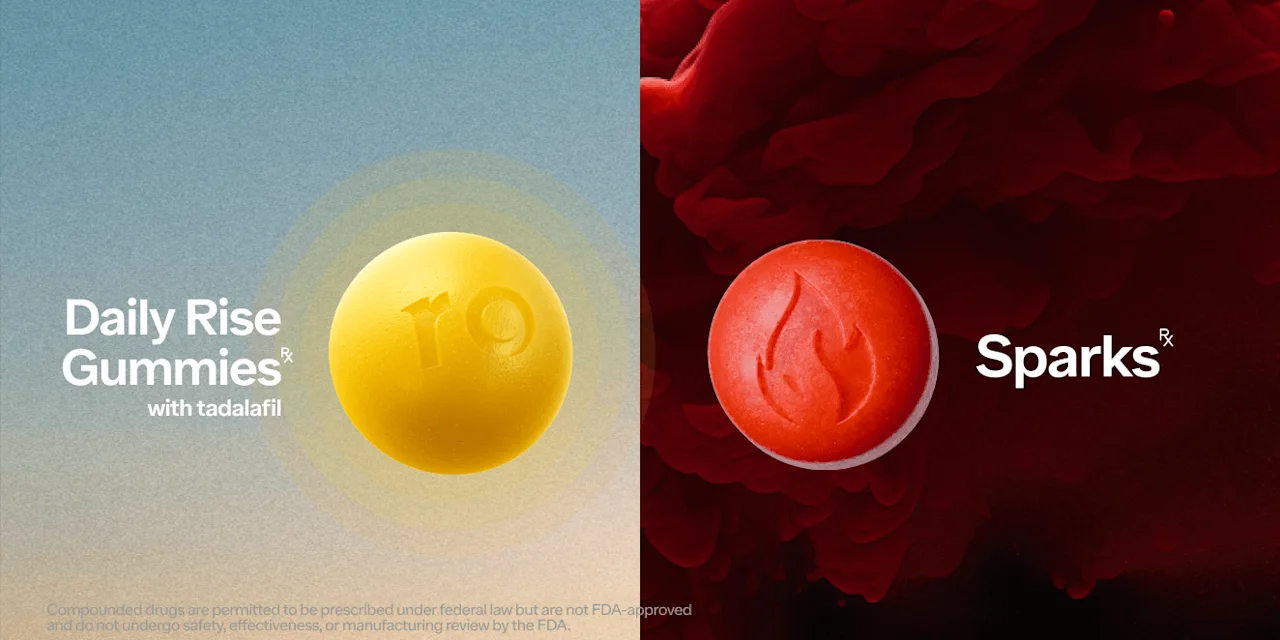Key takeaways
Beets are a dietary staple in many cultures and contain essential nutrients important for overall health, including B vitamins, folate, iron, and magnesium.
There is no evidence that beetroot works for erectile dysfunction (ED); however, when consumed, beets can increase the amount of nitric oxide—a compound crucial for getting and maintaining an erection—in the body.
Other beetroot benefits for men might include supporting lower blood pressure, maintaining heart health, improving athletic performance, and boosting cognitive function.
Here's what we'll cover
Key takeaways
Beets are a dietary staple in many cultures and contain essential nutrients important for overall health, including B vitamins, folate, iron, and magnesium.
There is no evidence that beetroot works for erectile dysfunction (ED); however, when consumed, beets can increase the amount of nitric oxide—a compound crucial for getting and maintaining an erection—in the body.
Other beetroot benefits for men might include supporting lower blood pressure, maintaining heart health, improving athletic performance, and boosting cognitive function.
Man has a long history with the beet. In ancient times, the root vegetable was thought of as more than just nourishment; beets were believed to possess medicinal properties to help treat disease and were also considered to be an aphrodisiac.
Some people (well, at least one doctor across the pond) have referred to beets as “vegetable Viagra,” claiming that the plant can help with erectile dysfunction (ED). But are any of these beetroot benefits for men rooted in science? Let’s take a look at how—or, more accurately, if—the veggie impacts sexual function, plus other health perks this sweet, earthy vegetable has to offer.
Beetroot for ED: does it work?
While beets may have made the so-called aphrodisiac list, there is no reason to expect that it enhances sexual desire. There also isn’t any scientific research specifically on beetroot for ED—at least not yet. Any claims that beets can enhance sex hormones, improve sexual performance, or make you rock-hard are anecdotal.
However, beets contain certain nutrients that, in theory, could benefit ED. For example, beets are a healthy source of nitrates, which get broken down into a compound called nitric oxide when consumed. What does nitric oxide have to do with erections? A lot, actually.
As the name suggests, nitric oxide is composed of nitrogen and oxygen. It’s naturally produced by the body and is also a byproduct of nitrate-rich foods, such as nuts, leafy greens, and (you guessed it) beets. Nitric oxide helps maintain healthy blood flow in the body by dilating or widening blood vessels, a process crucial for getting and maintaining an erection. While there’s no scientific research linking beets directly to better boners, there are studies that show beets can increase nitric oxide levels in the body, which, in turn, may be beneficial for erectile function.
Nitric oxide can also help widen blood vessels, since that’s one of its functions in the body, which may address high blood pressure. One small study found that drinking a cup of beet juice daily helped reduce blood pressure in people with hypertension. Since vascular problems like high blood pressure are also a proven contributor to ED, consuming foods that promote heart health and better blood flow—read: beets—may indirectly alleviate ED symptoms. That being said, there are many medications for high blood pressure that have been well-studied. If you are having issues with high blood pressure, talk to a healthcare provider to see if you need medication to address this issue. Leaving high blood pressure unaddressed can lead to dangerous consequences like heart attack and stroke, so it is important you consider medication if lifestyle changes are not enough to address your blood pressure values.
As you can see, any potential beetroot benefits for men (at least in the sexual health realm) are more indirect à la the domino effect.
It’s important to note that ED can have a variety of causes, including psychological problems, with mental health challenges such as stress, anxiety, and depression commonly contributing to the condition. While eating beets may be a low-risk thing to try, it’s always best to touch base with the healthcare provider to make sure any underlying issues are addressed.
Beetroot benefits for men
There’s not much evidence that beetroot can provide any ED-related benefits for men—not directly, anyway. Outside of the bedroom, however, beets can pack a pretty powerful punch.
Whole beets, beet juice, and leafy beet greens contain various micronutrients, including B vitamins (e.g. folate), vitamin C, iron, magnesium, potassium, and many more. Vitamins on their own aren’t a treatment for ED, but all these little things can add up and impact overall health, and overall health may have an overall positive impact on erectile function.
Lowers blood pressure
As mentioned above, beetroot (specifically, beetroot juice) may have a positive impact on blood pressure. A 2024 review, in particular, found that consuming beetroot juice daily significantly lowered blood pressure for up to 90 days, though the publication itself mentioned the certainty of the evidence is low. . Methods for treating high blood pressure (including dietary changes) can have resounding impacts throughout the body, such as reducing the risk of heart attack and stroke, kidney damage, and sexual dysfunction. While the direct effect of beets is still under debate, supporting your overall well-being through a healthy diet may have a benefit on your erectile function as well.
Reduces inflammation
Beetroot is one of the few vegetables that contain betalains, a group of powerful natural pigments that can have potent anti-inflammatory effects. This could benefit several aspects of health, especially since chronic inflammation has been linked to conditions including obesity, heart disease, and cancer. But what makes this a beet benefit for men in particular? While research is scarce, some evidence indicates foods that cause inflammation (think: fried food, processed meats, sugary drinks) are linked to ED. This suggests that eating items that reduce inflammation, such as beets (and other fruits and vegetables that contain anti-inflammatory compounds), could potentially reduce any dietary-related ED risks. But more research is needed to truly understand the link between beets’ antiinflammatory effects and sexual dysfunction.
Improves exercise performance
While there might not be much evidence that beets can definitively boost any workouts in the bedroom (if you catch our drift), research does suggest beets might make exercise more effective. One study found that getting more nitrates through daily beetroot supplementation improved the performance of combat sports athletes like boxers. Another 2024 study found beetroot juice to be superior to other sources of nitrates in enhancing performance during high-intensity exercise as well as aiding in muscle recovery afterward.
That being said, these studies are small, and beetroots contain significant carbohydrates, which might help with exercise on their own. More research is needed to study the effects of beets on exercise, especially when compared to other sources of carbohydrates, before making conclusions. Remember that healthy lifestyle changes, such as regularly exercising, can also help with ED.
May improve cognitive function
Again, research is limited and the jury is still out, but some researchers believe that a high-nitrate diet (such as one that includes beetroot juice) can help prevent cognitive decline through better blood flow in the brain. Cognitive decline and the onset of conditions like dementia are suggested to be related to reduced blood flow. Therefore, if beetroot truly regulates blood flow and increases nitric oxide production, it could, in theory, have protective effects against some vascular brain diseases.
How to use beet juice
To maximize all the health benefits beets have to offer, your best bet is consuming them as a whole food. That’s because juicing strips fruits and vegetables of essential nutrients like fiber, which is important for digestive health, heart health, and weight management. Beet juice on its own may also have a lot of sugar.
However, beet juice still contains essential nutrients and may be beneficial for overall health. You can drink it on its own, add it to a smoothie, or mix it with other juices. If trying beet juice to enhance exercise, it’s recommended to take it 90 minutes before a workout to best reap the rewards of the ingredient.
There’s no standard on how much beet juice to drink daily, but studies on beetroot juice for exercise suggest 140 mL daily. That said, try not to overdo it; beets are high in oxalate, high doses of which can raise the risk for kidney stones.
Bottom line
If you’re experiencing ED, you might be searching for a natural alternative before trying a prescription option, such as Viagra (sildenafil) or Cialis (tadalafil). And while beets are a great source of nourishment and contain many nutrients that can help maintain overall health and prevent disease, they probably aren’t the little blue pill of the root vegetable world. Currently, there’s no scientific research showing that beet consumption works for ED. However, beetroot could theoretically support erectile function due to the high levels of nitric oxide it produces in the body. It’s always best to talk to a healthcare provider to determine the underlying cause of ED and the best course of treatment for you.
DISCLAIMER
If you have any medical questions or concerns, please talk to your healthcare provider. The articles on Health Guide are underpinned by peer-reviewed research and information drawn from medical societies and governmental agencies. However, they are not a substitute for professional medical advice, diagnosis, or treatment.
Viagra Important Safety Information: Read more about serious warnings and safety info.
Cialis Important Safety Information: Read more about serious warnings and safety info.
Altawili, A. A., Altawili, M., Alwadai, A. M., et al. (2023). An Exploration of Dietary Strategies for Hypertension Management: A Narrative Review. Cureus, 15(12). doi: 10.7759/cureus.50130. Retrieved from https://www.ncbi.nlm.nih.gov/pmc/articles/PMC10771610/
Andrabi, S. M., Sharma, N. S., Karan, A., et al. (2023). Nitric Oxide: Physiological Functions, Delivery, and Biomedical Applications. Advanced Science, 10(30). doi: 10.1002/advs.202303259. Retrieved from https://onlinelibrary.wiley.com/doi/10.1002/advs.202303259
Astley, O. (2023, September 18). Dr Michael Mosley hails ‘Viagra-like’ vegetable that helps men with erectile dysfunction. Mirror. Retrieved from https://www.mirror.co.uk/news/health/dr-michael-mosley-hails-viagra-30969047
Bargagli, M., Tio, M. C., Waikar, S. S., et al. (2020). Dietary Oxalate Intake and Kidney Outcomes. Nutrients, 12(9), 2673. doi: 10.3390/nu12092673. Retrieved from https://www.ncbi.nlm.nih.gov/pmc/articles/PMC7551439/
Clifford, T., Howatson, G., West, D. J., et al. (2015). The potential benefits of red beetroot supplementation in health and disease. Nutrients, 7(4). doi: 10.3390/nu7042801. Retrieved from https://www.ncbi.nlm.nih.gov/pmc/articles/PMC4425174/
Delleli, S., Ouergui, I., Messaoudi, H., et al. (2023). Does Beetroot Supplementation Improve Performance in Combat Sports Athletes? A Systematic Review of Randomized Controlled Trials. Nutrients, 15(2). doi: 10.3390/nu15020398. Retrieved from https://www.ncbi.nlm.nih.gov/pmc/articles/PMC9860842/
Domínguez, R., Cuenca, E., Maté-Muñoz, J. L., et al. (2017). Effects of Beetroot Juice Supplementation on Cardiorespiratory Endurance in Athletes. A Systematic Review. Nutrients, 9(1). doi: 10.3390/nu9010043. Retrieved from https://www.ncbi.nlm.nih.gov/pmc/articles/PMC5295087/
Dreher, M. L. (2018). Whole Fruits and Fruit Fiber Emerging Health Effects. Nutrients, 10(12). doi: 10.3390/nu10121833. Retrieved from https://www.ncbi.nlm.nih.gov/pmc/articles/PMC6315720/
El Gamal, A. A., AlSaid, M. S., Raish, M., et al. (2014). Beetroot (Beta vulgaris L.) extract ameliorates gentamicin-induced nephrotoxicity associated oxidative stress, inflammation, and apoptosis in rodent model. Mediators of Inflammation, 2014, 983952. doi: 10.1155/2014/983952. Retrieved from https://www.ncbi.nlm.nih.gov/pmc/articles/PMC4221885/
Gerbild, H., Larsen, C. M., Graugaard, C., et al. (2018). Physical Activity to Improve Erectile Function: A Systematic Review of Intervention Studies. Sexual Medicine, 6(2). doi: 10.1016/j.esxm.2018.02.001. Retrieved from https://www.ncbi.nlm.nih.gov/pmc/articles/PMC5960035/
Grönroos, R., Eggertsen, R., Bernhardsson, S., et al. (2024). Effects of beetroot juice on blood pressure in hypertension according to European Society of Hypertension Guidelines: A systematic review and meta-analysis. Nutrition, Metabolism and Cardiovascular Diseases, 34(10). doi: 10.1016/j.numecd.2024.06.009. Retrieved from https://www.nmcd-journal.com/article/S0939-4753(24)00236-9/fulltext
Hernández-Cerda, J., Bertomeu-González, V., Zuazola, P., et al. (2020). Understanding Erectile Dysfunction in Hypertensive Patients: The Need for Good Patient Management. Vascular Health and Risk Management, 16, 231-239. doi: 10.2147/VHRM.S223331. Retrieved from https://www.ncbi.nlm.nih.gov/pmc/articles/PMC7297457/
Kapil, V., Khambata, R. S., Robertson, A., et al. (2014). Dietary Nitrate Provides Sustained Blood Pressure Lowering in Hypertensive Patients: A Randomized, Phase 2, Double-Blind, Placebo-Controlled Study. Hypertension, 65(2). doi: 10.1161/HYPERTENSIONAHA.114.04675. Retrieved from https://www.ahajournals.org/doi/10.1161/HYPERTENSIONAHA.114.04675
Lou, I. X., Chen, J., Ali, K., et al. (2023). Relationship Between Hypertension, Antihypertensive Drugs and Sexual Dysfunction in Men and Women: A Literature Review. Vascular Health and Risk Management, 19, 691–705. doi: 10.2147/VHRM.S439334. Retrieved from https://www.ncbi.nlm.nih.gov/pmc/articles/PMC10629452/
Pahwa, R., Goyal, A., & Jialal, I. (2023.) Chronic Inflammation. StatPearls. Retrieved from https://www.ncbi.nlm.nih.gov/books/NBK493173/
Ruan, Z., Xie, X., Yu, H., et al. (2022). Association between dietary inflammation and erectile dysfunction among US adults: A cross-sectional analysis of the National Health and Nutrition Examination Survey 2001-2004. Frontiers in Nutrition, 9, 930272. doi: 10.3389/fnut.2022.930272. Retrieved from https://www.ncbi.nlm.nih.gov/pmc/articles/PMC9691656/
Ruxton, C. S. & Myers, M. (2021). Fruit Juices: Are They Helpful or Harmful? An Evidence Review. Nutrients, 13(6), 1815. doi: 10.3390/nu13061815. Retrieved from https://www.ncbi.nlm.nih.gov/pmc/articles/PMC8228760/
Sentkowska, A. & Pyrzyńska, K. (2023). Old-Fashioned, but Still a Superfood—Red Beets as a Rich Source of Bioactive Compounds. Applied Sciences, 13(13). doi: 10.3390/app13137445. Retrieved from https://www.mdpi.com/2076-3417/13/13/7445












